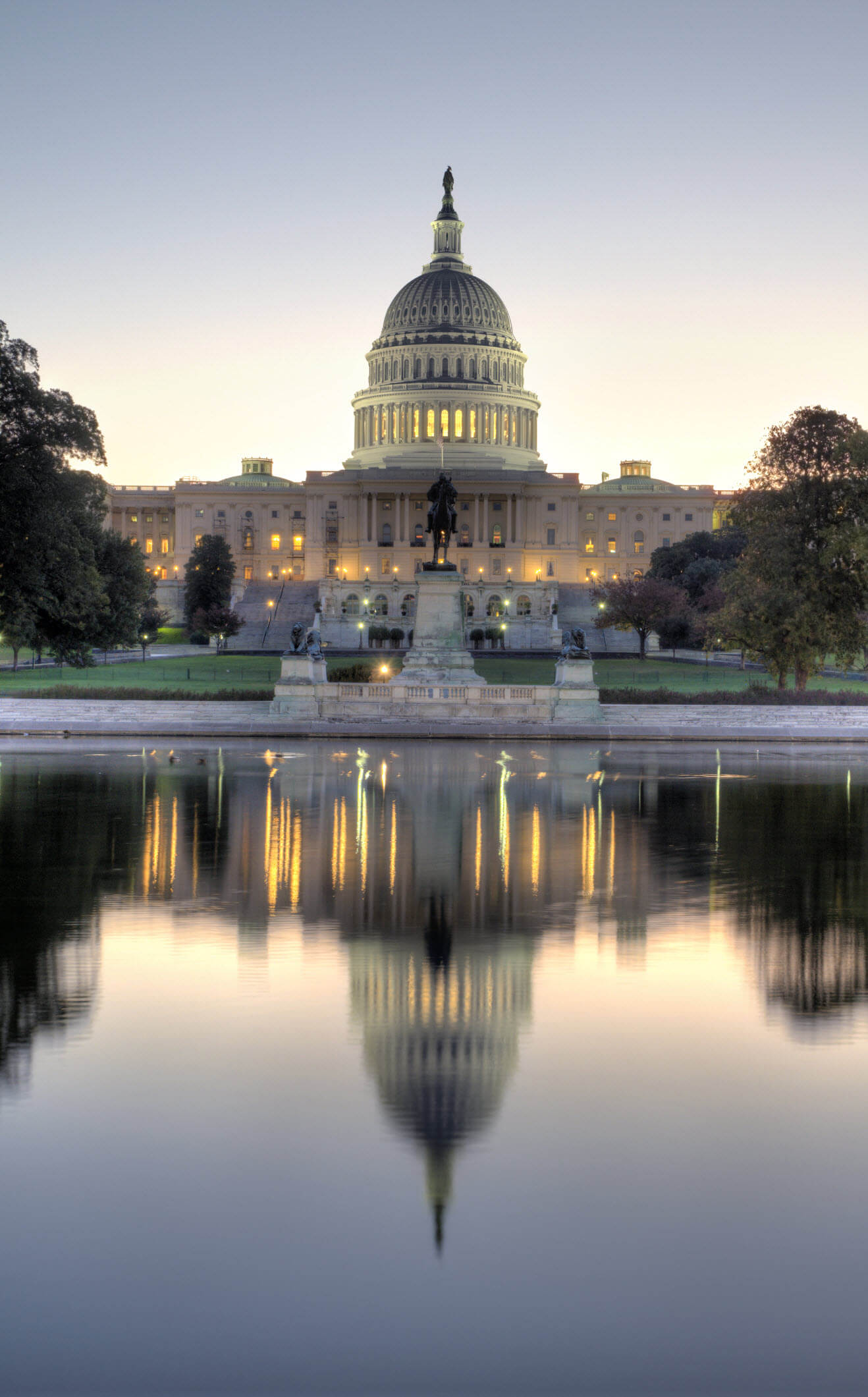On Friday, November 5, the U.S. House of Representatives passed the Infrastructure Investment & Jobs Act (H.R. 3684). This bill will provide nearly $1.2 trillion in funding for the nation’s infrastructure. Approximately, $550 billion of the total is new funding to be spent during the next five years, and almost $51 billion is allocated to drinking water, wastewater, and stormwater infrastructure funding.
The bill also includes several policy provisions that will benefit the nation’s water infrastructure. The passage of H.R. 3684 was made possible by an agreement reached on a $1.75 trillion Budget Reconciliation package. That package will also boost funding for several water infrastructure grant programs in H.R. 3684.
The bill will now head to President Biden for his signature into law. Much of the funding in the package is guaranteed and will begin being released in the FY22 budget. But, some funding is connected to the Budget Reconciliation package recently agreed to between the House and Senate. Once that package is completed, there will be additional funding for some of the programs listed below.
Water Provisions
The water infrastructure section in the package is fairly similar to what was passed by the Senate in April 2021 in the Drinking Water & Wastewater Infrastructure Act (S. 914), which WEF supported. WEF also previously sent a letter to the U.S. House in support of their earlier version of a water infrastructure bill. Below is a list of the key water provisions in the infrastructure package. (WEF has supported the provisions listed in italics.)
- Clean Water State Revolving Fund (SRF) and Drinking Water SRF each receive a guaranteed $11.7 billion over five years.
- State SRF programs will be required to provide up to 30% and not less than 10% of funding as grants and principal forgiveness loans, of which 50% is set-aside for rural and financially distressed communities.
- State SRF programs will not be required to provide the 20% match to receive the federal SRF funding.
- $1 billion will be provided in grants through the Clean Water SRF to address emerging contaminants.
- $4 billion will be provided in grants through the Drinking Water SRF to address PFAS in drinking water.
- $15 billion in loans and grants will be provided through the Drinking Water SRF for lead service line replacement. The Budget Reconciliation package includes an additional $9 billion for lead through non-SRF grant programs.
- The Water Infrastructure Finance and Innovation Act (WIFIA) will receive $250 million over the next five years and facilities applying will be required to have only one ratings agency opinion letter (instead of two).
- The U.S. Environmental Protection Agency Sewer Overflow & Stormwater Reuse Municipal Grant Program will receive $1.4 billion over the next five years. The Budget Reconciliation increases the funding to $1.8 billion over 3 years, of which $1.3 billion is reserved for financially distressed communities.
- The Alternative Source Water Pilot Program will get $125 million over the next five years. $100 million of this funding is guaranteed in the Budget Reconciliation package.
- The Rural and Low-Income Water Assistance Pilot Program will establish a new U.S. Environmental Protection Agency program to provide 40 grants per year to utilities to assist low-income ratepayers. The Budget Reconciliation package guarantees funding for the grants by providing $225 million over 3 years.
- The Wastewater Energy Efficiency Grant Pilot Program will get $100 million over the next five years.
- The Clean Water Infrastructure Resiliency and Sustainability Grant Program will get $125 million over the next five years.
- The Small Publicly Owned Treatment Works Efficiency Grant Program will be established with funding levels to be determined.
- The connection of homes and communities to Publicly Owned Treatment Works Grant Program will get $200 million over the next five years.
- The Water Infrastructure and Workforce Investment Grant Program will get $25 million over the next five years.
- The Stormwater Infrastructure Technology Program will get $25 million to create five Stormwater Centers of Excellence and $50 million for stormwater infrastructure planning/development and implementation grants.
- Decentralized Households grants will get $150 million over five years to help low-income homeowners construct or repair failing septic systems. The Budget Reconciliation package guarantees this funding.
- EPA will get $5 million per year to complete the Clean Watershed Needs Survey biennially. The Budget Reconciliation package guarantees this funding.
- Buy America requirements will expand in SRF and WIFIA to include “manufactured goods,” in addition to the existing iron and steel Buy America requirements. (WEF sent letter of opposition.)
'Seize This Opportunity'
"With the final passage by Congress of this infrastructure package, the water sector will get the largest boost in federal funding for local water infrastructure it has received in decades," said WEF President Jamie Eichenberger. "This massive funding increase is the result of years of hard work by WEF and our members to make Congress understand the desperate need for water infrastructure investments in communities nationwide."
"Thank you to all the WEF members who have helped over the years," he added. "Now it is time to seize this opportunity to rebuild water infrastructure and systems, not as we did in the past, but in ways fit for the 21st century, that utilize innovative technology, create resilience, serve communities, and deliver equity."



